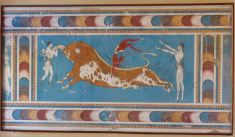Speaker
Description
The CMS Electromagnetic Calorimeter (ECAL) is the largest crystal calorimeter operating in a high energy physics experiment. Since its installation in CMS, it has made fundamental contributions to the CMS physics program by precisely measuring the energy, position, and timing of photons, electrons, and hadronic jets. The excellent ECAL energy resolution facilitated the observation of the Higgs boson in its two photon decay mode in 2012. These important results have been achieved due to the continuous efforts to improve the detector hardware, firmware, and software, as well as the energy and timing reconstruction and calibration methods that have been continuously developed and evolved to exploit the full potential of the calorimeter.
A high-level historical overview of the design, construction, and operation of the ECAL over more than 10 years of operation will be presented. The talk will review the initial expectations for detector performance and the plans for operation. These expectations will then be compared to the actual performance achieved during LHC operations. The techniques that have been developed and exploited to maintain the highest operational efficiency and achieve the ultimate energy resolution will also be described. In particular, in-situ crystal and photodetector performance, trigger performance, energy resolution, and timing resolution will be addressed. The impacts of ageing on detector performance and the challenges of monitoring and correcting for these effects will also be highlighted. The talk will summarise the lessons learned during the construction and operation phases of the calorimeter, with a prospective look at crystal calorimeters for future colliders.
Details
Amina Zghiche
amina.zghiche@cern.ch (CNRS/IN2P3/LLR-Polytechnique (FR))
| Is this abstract from experiment? | Yes |
|---|---|
| Name of experiment and experimental site | CMS |
| Is the speaker for that presentation defined? | Yes |
| Internet talk | No |
